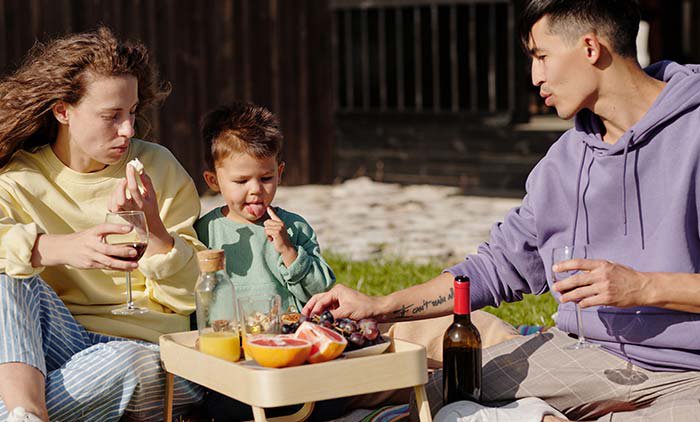Impact on children and young people

Exposure through advertising and supermarkets
Young people are already exposed to alcohol advertising daily – on billboards, on public transport and on tv (especially during sporting events).
On top of this, young people are now seeing multiple ads about zero alcohol drinks and seeing these products being sold in supermarkets.
Although these products are low to no alcohol, seeing them on tv and in supermarkets is creating extra brand exposure for big alcohol companies. Supermarkets in particular are promoting alcohol brands in shopping aisles where young people previously would not have been exposed to them.
Many advertising campaigns are also portraying zero alcohol drinks as something to drink in addition to alcohol; rather than as a substitute – and in situations where it is illegal or dangerous to drink alcohol. 6, 7
Heineken’s ad campaign for ‘Heineken 0.0’ actually uses the tag line: “That moment you couldn’t have a beer… now you can”, with their ads showing people drinking Heineken 0.0 while driving a car, preparing to drive a boat with a water-skiing friend, and during a work meeting.8
Because these products look virtually identical to alcoholic drinks, some people (especially children) may find it difficult to tell the difference.
Children as young as two can recognise alcohol by the smell or appearance of the bottle, but can’t yet read or understand the significance of a label’s colour.9-11 This could mean young people might assume alcohol is being consumed more frequently than it is, and in situations where it’s high risk and/or illegal.
This poses a risk for children’s developing social norms around when, and where, it is appropriate to drink alcohol.12
Early drinking habits
It’s hard to know how zero alcohol products might affect children and young people under 18 who drink them.
But, there’s a risk in consuming a drink which looks, smells, and tastes like alcohol.
Developing an early habit of drinking a zero alcohol drink may transition to regularly drinking alcohol later.
For example, a young person who sees their parents having a couple of beers or wines after work or with dinner, could do the same with a zero alcohol drink. And, the habit and expectation of that regular drink could become well established.
As they become older, it would be a smooth transition to drinking alcohol instead.
This long-established habit may also be difficult for the young person to break if they want to reduce their alcohol consumption in the future.
Alcohol industry motives
While it’s true zero alcohol drinks are a better alternative to alcoholic drinks, this doesn’t mean the alcohol industry is ‘looking after’ the health of Australians.
In fact, the industry is well-known for actively opposing evidence-based public health efforts that threaten their profitability.
This includes alcohol marketing regulation, the release of the updated National Health and Medical Council’s alcohol guidelines, the introduction of a minimum unit price for alcohol in the Northern Territory, and pregnancy warning labels on alcohol.13-16 You can read about all of this in the below articles:
- Public health vs ‘Big Alcohol’ profits
- Minimum unit pricing vs ‘big alcohol’ profits
- Pregnancy warnings on alcohol just make sense
In the case of zero alcohol drinks, they’re already an industry success - regardless of how people consume them.
If someone is substituting, they might just be swapping a Heineken for a Heineken 0.0.
In the case of adding, they might continue drinking the same number of regular Heinekens and additionally drink Heineken 0.0 at times when they didn’t previously drink.
Brands such as Heineken and Carlton have made it clear with their marketing campaigns that they want people to drink their zero alcohol products in addition to their current alcohol consumption – and in situations where it’s not legal or safe to drink alcohol – such as driving or boating.
Neither is positioning their zero alcohol products as a ‘healthier’ substitute.
It’s worth noting there are smaller companies selling zero alcohol drinks only, and they are not currently owned by parent alcohol corporations.
However, the recent acquisition of Seedlip, an early producer of zero alcohol drinks, by alcohol industry giant Diageo is an indication of what the industry might do in the future.17